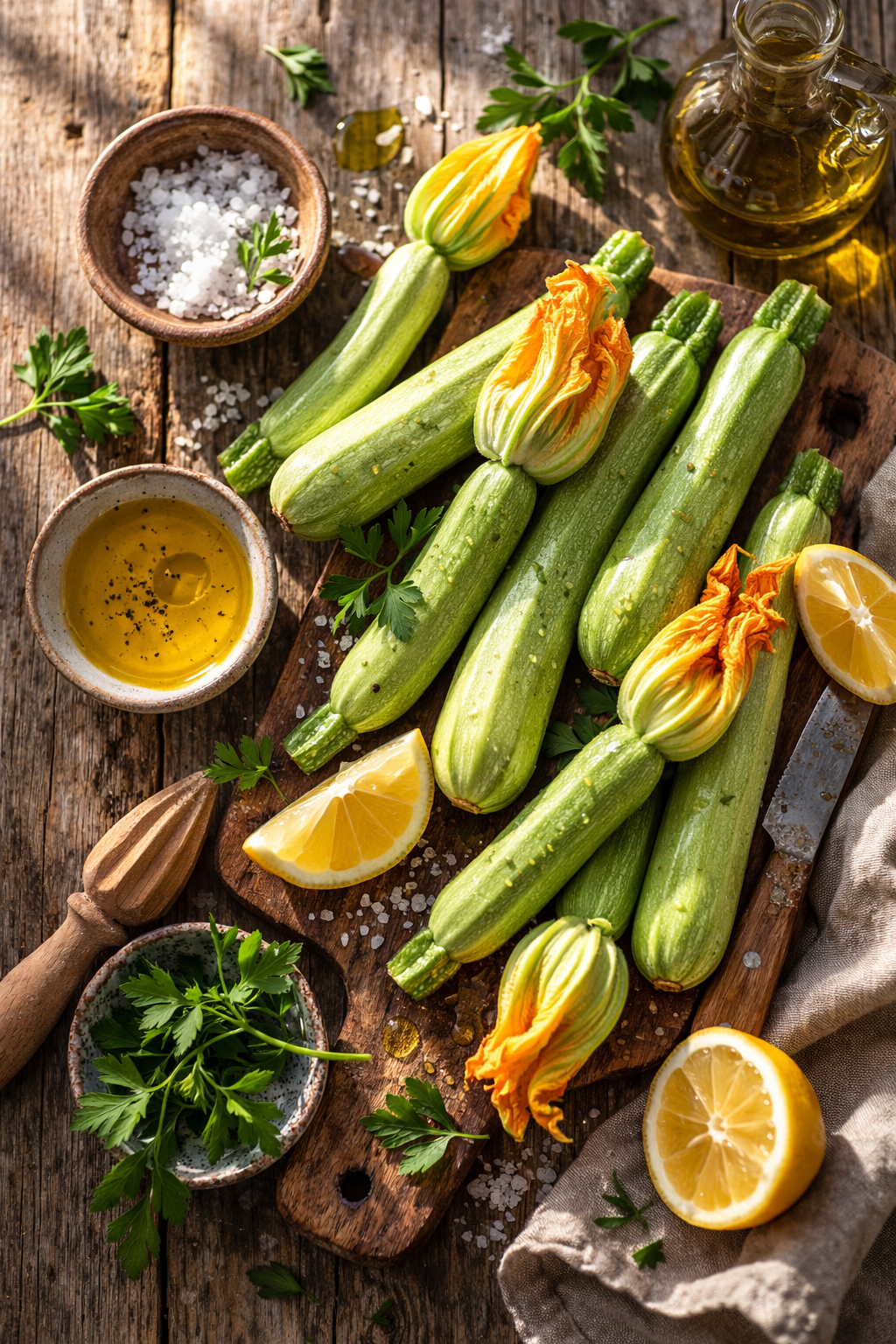Vinegar is a versatile ingredient found in many kitchens, but sometimes, we might not have it on hand or may need to find a substitute due to dietary restrictions or personal preferences. The good news is that there are plenty of alternatives that can provide the desired flavor profile and acidity of vinegar, making it easy to adapt recipes without sacrificing taste.
Understanding the basics of vinegar and what makes each type unique can help us choose the best substitute for each recipe’s needs.
There are various reasons one may need a vinegar substitute, such as allergies, sensitivities to certain components like salicylates or sulfites, or simply running out of vinegar at home. Choose a vinegar substitute that closely resembles the desired vinegar’s flavor and acidity. Lemon or lime juice provides acidity, while honey or maple syrup offers a similar flavor profile as vinegar substitutes.
Key Takeaways
- Vinegar substitutes are available for various reasons, including dietary restrictions and personal preferences.
- Citrus-based and sweet alternatives can mimic the flavor profile and acidity of vinegar.
- Understanding the basics of vinegar helps in choosing the right substitute for each recipe’s needs.
What is Vinegar
Vinegar is produced from ethanol fermentation, yielding acetic acid as its key ingredient. This versatile product has a rich history, dating back to ancient civilizations like Babylonia, where it was discovered as a byproduct of unattended grape juice and subsequently used as a food preservative.
I have come across a variety of vinegar types in my culinary adventures, each with its unique flavor and uses. Some of the most common and widely used types are apple cider vinegar, red wine vinegar, and white wine vinegar.
Types of Vinegar
- Apple cider vinegar: Made from fermented apple cider, this vinegar has a mild taste and a subtle hint of apple flavor. It is versatile and can be used as a substitute for other types of vinegar in most recipes.
- Red wine vinegar: Derived from the fermentation of red wine, it has a bold, robust flavor. This vinegar is often used in salad dressings and marinades and can be substituted for some other vinegar varieties.
- White wine vinegar: Produced from the fermentation of white wine, it offers a slightly milder flavor compared to red wine vinegar. It is widely used in cooking or as a substitute for other types of vinegar.
In addition to the three mentioned above, there are many other vinegar varieties as well. Some examples include white vinegar, balsamic vinegar, malt vinegar, herb vinegar, rice vinegar, rice wine vinegar, distilled white vinegar, white balsamic vinegar, black vinegar, and brown rice vinegar. Each type has its unique characteristics and applications in culinary dishes or other uses.
For instance, balsamic vinegar is produced from grape must and aged for a certain period. It adds a rich flavor profile to dishes, especially Italian cuisine. On the other hand, rice vinegar, popular in Asian cooking, is made from fermented rice and imparts a subtle, slightly sweet taste.
In conclusion, understanding the basic properties and using different vinegar types can enhance your culinary creations. Selecting the appropriate vinegar for your recipe will provide the desired flavor and results, taking your dishes to new heights.
The Need for Substitutes
As a frequent home cook, I’ve come across situations where I need a substitute for vinegar in various recipes. Vinegar is a bold, acidic ingredient that can elevate a dish, but you may need to avoid it or find a substitute. In this section, we’ll discuss reasons for substituting vinegar and the health benefits that some vinegar substitutes can provide.
Reasons for Substitution
There could be several reasons for seeking vinegar substitutes. Sometimes, it’s simply a matter of not having any vinegar in the pantry. In other cases, a person may have allergies or sensitivities to certain types of vinegar, necessitating a replacement. Additionally, some recipes may call for a specific type of vinegar, like apple cider vinegar, that you might not have or prefer to use.
People with acid reflux might seek vinegar substitutes due to its high acidity.. Lastly, cultural or religious reasons may also prompt a search for a vinegar alternative.
Health Benefits of Vinegar Substitutes
Some vinegar substitutes may offer health benefits that can make them an appealing choice. One popular substitution is using apple cider vinegar. Apple cider vinegar has been known for its various uses and potential health benefits. For instance, the acetic acid found in apple cider vinegar can help control blood sugar levels and support weight loss. Additionally, other beneficial enzymes, antioxidants, and minerals are present in this type of vinegar substitute.
Lemon juice is another common substitute, offering multiple health benefits, including being a rich source of vitamin C. This antioxidant plays a vital role in supporting the immune system and collagen production.
In conclusion, the right vinegar substitute ensures desired taste and health benefits for various recipes.
Citrus Based Substitutes

Lemon Juice
One confident and knowledgeable substitute for vinegar is lemon juice, which can provide a similar acidic taste to recipes. It’s a popular choice, especially when making dressings or sauces that call for vinegar. Because of its bright and zesty flavor, lemon juice can blend well into the dish without overpowering other ingredients. I can also use it for balancing out sweet and savory flavors in various dishes, from marinades to desserts.
I recommend starting off with a small amount of lemon juice and gradually adding more to reach the desired taste. Lemon juice may not be the perfect substitute for all vinegar types, so consider the recipe and flavors.

Lime Juice
Another clear and neutral option for a vinegar substitute is lime juice. Lime juice shares many similarities with lemon juice, including its acidity and ability to brighten up dishes. I use lime juice for tangy kick in Mexican or Thai recipes without the overpowering flavor of vinegar.
Like lemon juice, I can add a small amount of lime juice and adjust the taste as needed. Lime juice has a different flavor than lemon juice, so it may result in a distinct flavor in dishes.
In closing, lemon and lime juice both offer excellent substitutes for vinegar in various recipes. The key is to use them thoughtfully, considering the specific dish and complementing the existing flavors.
Sweet Substitutes

Honey
As a confident and knowledgeable home cook, I always keep honey on hand. Honey can be an excellent vinegar substitute in various recipes, especially when a hint of sweetness is desired. It is well-suited for marinades, dressings, and some sauces. I use 1 tablespoon of honey to replace 1 tablespoon of vinegar, adjusting the quantity to taste due to its sweetness. Keep in mind that honey’s consistency is thicker than vinegar, so it might alter the texture of the recipe slightly. Also, honey is not recommended as a direct substitute in pickling recipes, as it lacks the necessary acidity.

Maple Syrup
Maple syrup is another sweet and neutral option for substituting vinegar. It shares a similar sweetness profile with honey but offers a distinct maple flavor that can enhance certain recipes. I use pure maple syrup as a substitute, as artificial versions lack the same depth of flavor. Like honey, maple syrup can work well in marinades, dressings, and some sauces. I would use 1 tablespoon of maple syrup to replace 1 tablespoon of vinegar but always taste and adjust accordingly.
However, just like honey, maple syrup lacks the acidity that vinegar provides. It’s essential to keep this in mind when using it as a substitute, especially in recipes requiring an acidic element. Maple syrup is not ideal for pickling recipes or dishes where acidity is crucial for balance and flavor.
Using Substitutes in Recipes
As a cooking enthusiast, I often find myself short of an ingredient, such as vinegar, in certain recipes. Fear not, as I have learned about using substitutes for vinegar in various dishes. Let me share my knowledge on incorporating substitutes in salad dressings, marinades, and savory recipes.
Salad Dressings
Finding the right vinegar substitute for salad dressings is crucial for achieving the desired taste and consistency. I use apple cider vinegar for salad dressings, as it has a mild, subtle hint of apple flavor and works well. White wine vinegar is another option, balanced with sugar to reduce acidity in recipes. These substitutes can easily replace vinegar in dressings like vinaigrettes, adding a delightful tanginess to your salads.
Marinades
Vinegar is a popular ingredient for marinades because it helps tenderize meat and infuse it with flavor. When I’m out of vinegar, I’ve found that rice vinegar serves as an excellent substitute for marinating purposes. It has a milder acidity and a slightly sweet taste that works well with meat, fish, and vegetables. Another good option is balsamic vinegar, which imparts a rich, slightly sweet taste, and can be used as a 1:1 substitute in most marinades.
Savory Recipes
In savory recipes, vinegar adds a depth of flavor that can be difficult to replicate. But, I’ve discovered a few substitutes that can help bring out the desired flavors in these dishes. One option is malt vinegar, which has a strong, robust flavor that works well in sauces and gravies. Additionally, champagne vinegar can add a light and delicate acidic touch to dishes like risottos and pasta sauces. When using champagne vinegar, be mindful of its stronger flavor and adjust the amount in your recipe accordingly.
As I’ve found, a variety of vinegars can be interchanged to suit your taste preferences and maintain the essence of the original recipe. With these substitutes in mind, I am confident that you’ll be able to recreate flavorful salad dressings, marinades, and savory dishes even if vinegar is missing from your pantry. Happy cooking!
Conclusion
As a home cook, I’ve discovered that finding the right vinegar substitute for a recipe is essential to maintaining flavor profiles and achieving desired results. Based on my research, there are several options that can help you swap out the vinegar without compromising the original taste of your dish.
For example, using white wine vinegar with a little sugar can closely mirror the taste of rice vinegar. Another option is to combine red or white wine with water as a substitute for apple cider vinegar or distilled white vinegar.
When considering vinegar substitutes, it’s important for me to remember the unique properties of each type of vinegar and choose a substitute that will best complement the flavors in my recipe. I’ve also learned that experimenting with different options can lead to new and exciting flavor combinations.
In the end, my experience has shown that being adaptable and knowledgeable about potential vinegar substitutes can greatly enhance my cooking skills and help me create delicious dishes even when my pantry is missing a key ingredient.
Frequently Asked Questions
- What can replace rice vinegar in a recipe? If you need to replace rice vinegar in a recipe, a good option is to use white wine vinegar with a touch of sugar. To substitute for one tablespoon of rice vinegar, use one tablespoon of white wine vinegar and an additional ¼ tablespoon of sugar. This combination will create a near-identical substitute with a similar flavor profile.
- What’s a good swap for vinegar in Chinese dishes? A suitable substitute for vinegar in Chinese dishes would be apple cider vinegar, which has a mild and subtle hint of apple flavor. Apple cider vinegar is the most versatile vinegar and can be used as a substitute for almost any other vinegar in most recipes, including Chinese cuisine.
- Which alternative is best for white wine vinegar? If you don’t have white wine vinegar on hand, red wine vinegar or apple cider vinegar can be used as a suitable alternative. Both options can be substituted in a 1:1 ratio. These vinegar substitutes will still provide the necessary acidity for your recipes while maintaining a similar taste.
- What is a suitable balsamic vinegar alternative? When looking for a balsamic vinegar alternative, consider using a combination of cider vinegar or red wine vinegar mixed with a bit of sugar. To replace 1 tablespoon of balsamic vinegar, substitute 1 tablespoon of either cider vinegar or red wine vinegar plus ½ teaspoon of sugar. This will provide a similar taste to balsamic vinegar while maintaining the integrity of your dish.
- What is a homemade malt vinegar option? If you need a malt vinegar substitute, white distilled vinegar can be used as a viable option. Both malt vinegar and white distilled vinegar have similar strength and acidity, so you can use a 1:1 ratio when substituting. Keep in mind that white distilled vinegar has a strong taste, so it’s best for pickling and sauces with low vinegar content.

*We may earn a commission for purchases made using our links. Please see our disclosure to learn more.



